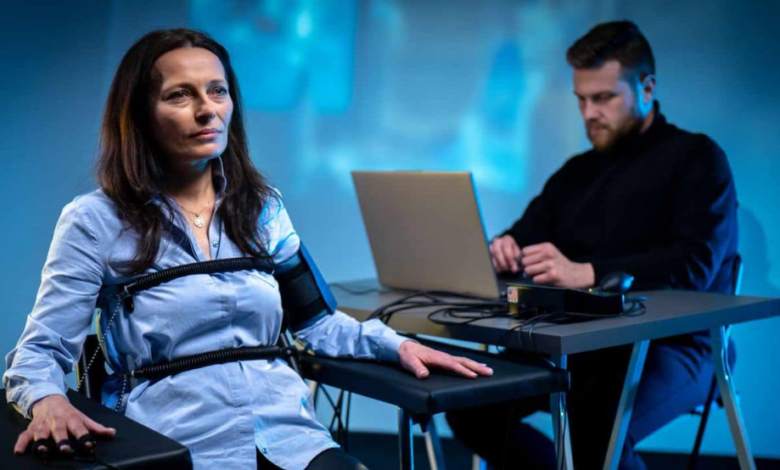Lie Detector Testing in Maryland: Understanding the Role and Limitations of Polygraph Tests

Polygraph tests, often referred to as lie detector tests, are tools designed to assess truthfulness by measuring physiological responses such as heart rate, blood pressure, respiratory rate, and skin conductivity. These responses are monitored while the subject answers a series of questions, with the theory being that deceptive answers will trigger detectable stress-related changes in the body. Maryland polygraph testing is used in several contexts, including law enforcement investigations, government employment screenings, and, to a lesser extent, in the private sector. However, the legal framework and scientific debate surrounding polygraphs make their use complex and often controversial. While they can offer investigative insights, polygraphs are not infallible, and their results are generally not admissible as evidence in court. Understanding how lie detector tests are applied, regulated, and perceived in Maryland is crucial for anyone considering their use or participation in one.
How Polygraph Tests Are Administered
A standard polygraph examination involves three phases: the pre-test interview, the data collection phase, and the post-test analysis. During the pre-test phase, the examiner discusses the procedure with the subject, explains the questions, and establishes a physiological baseline. In the data collection phase, the subject is connected to the polygraph machine through sensors that track bodily responses. The examiner then asks a mix of relevant, irrelevant, and control questions. Finally, in the post-test phase, the examiner reviews the charts to assess whether the responses indicate deception. In Maryland, polygraph examiners must be licensed and meet strict professional standards to ensure the reliability of the testing process. The quality of the polygraph depends significantly on the examiner’s training, the structure of the test, and the individual’s psychological and physical state during the procedure.
Legal Guidelines for Polygraph Use in Maryland
The use of polygraph tests in Maryland is subject to both federal and state regulations. The federal Employee Polygraph Protection Act (EPPA) prohibits most private employers from using lie detector tests for pre-employment screening or during the course of employment, with exceptions for certain jobs related to security, pharmaceuticals, or government contracts. In Maryland, additional state laws mirror these protections and further limit polygraph use in the private sector. However, government agencies and law enforcement departments are generally allowed to use polygraph testing as part of hiring procedures and internal investigations. Police departments across Maryland commonly require candidates to undergo a polygraph as part of the background investigation process. While this use is lawful, participation is typically voluntary, though refusal may impact a candidate’s eligibility for employment in sensitive positions. Importantly, in Maryland courts, polygraph results are not admissible as evidence unless both parties in a legal case agree to their inclusion, which rarely happens due to concerns about reliability.
See also: Lawn Care in Mississauga Tips for a Healthy, Green Yard
Controversy and Reliability of Polygraph Testing
Despite their widespread use, polygraph tests remain scientifically and ethically controversial. Supporters claim that when conducted by a skilled examiner under proper conditions, polygraphs can be up to 85–90% accurate. However, critics argue that polygraphs measure anxiety or stress rather than deception itself. A person telling the truth may be nervous and trigger false positives, while a deceptive individual who remains calm may pass the test undetected. These concerns have led many courts, including those in Maryland, to be skeptical about the use of polygraph evidence in trials. Additionally, the interpretation of polygraph results is subjective and can vary between examiners. This inconsistency has further fueled debate among legal and scientific communities about the appropriateness of relying on polygraphs for high-stakes decisions. Because of this, most experts recommend using polygraph results as just one component of a broader investigative process rather than as standalone proof of guilt or innocence.
The Future of Lie Detection in Maryland
As technology advances, Maryland may see changes in how deception detection is approached. New techniques such as voice stress analysis, eye-tracking, and even artificial intelligence-based behavioral analysis are being explored as alternatives to traditional polygraph tests. While these technologies are still in developmental stages and not yet widely accepted or regulated, they could potentially offer more reliable ways to assess truthfulness in the future. For now, polygraph testing remains a tool that law enforcement and certain employers in Maryland continue to rely on for pre-screening and investigative support. However, anyone asked to take a polygraph test in Maryland should understand their legal rights, the limitations of the technology, and the implications of agreeing to participate in such testing.
Location in Maryland
Towson – 100 West Rd, 3rd Floor, Towson, MD 21204
In conclusion, polygraph tests in Maryland occupy a unique space between investigative utility and legal caution. They can be useful tools when administered correctly and interpreted cautiously, but their limitations must be acknowledged. Whether used for pre-employment screening, internal investigations, or part of a broader criminal inquiry, polygraphs should never be considered foolproof. Maryland’s regulations reflect a balanced approach—allowing the use of polygraphs under controlled conditions while recognizing the importance of due process and scientific integrity.



